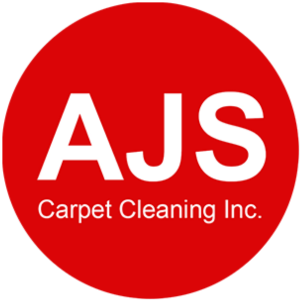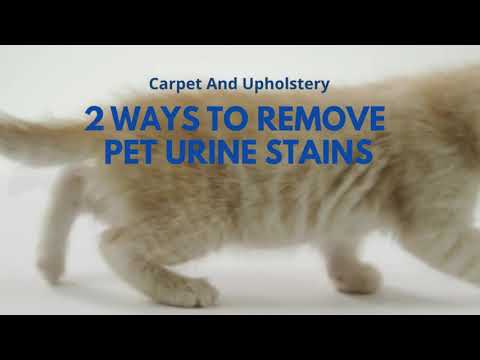Pet-Safe Carpet Cleaning
Introduction
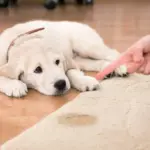 Pet safe carpet cleaning is becoming increasingly important. Pet owners (or pet parents), often find themselves walking a delicate line between maintaining a clean home and ensuring their pets’ safety. Many are unaware that standard carpet cleaning products, although effective, contain chemicals that can be perilous to their furry companions.
Pet safe carpet cleaning is becoming increasingly important. Pet owners (or pet parents), often find themselves walking a delicate line between maintaining a clean home and ensuring their pets’ safety. Many are unaware that standard carpet cleaning products, although effective, contain chemicals that can be perilous to their furry companions.
These toxic components may cause a variety of health problems ranging from mild skin irritations to severe internal organ damage. So, recognizing the need for safer alternatives, the carpet cleaning industry has seen a surge in pet safe carpet cleaning solutions.
This article explores this topic, and sheds light on the dangers of common cleaners and offering safer alternatives.
The Hidden Dangers in Regular Carpet Cleaners
It’s unsettling to think that the vibrant, fresh-smelling carpet post-clean might pose a hidden threat to your beloved pet. But it’s crucial to understand the chemicals present in cleaning agents.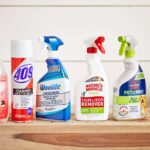
Perchloroethylene, commonly used in many cleaning solutions, is a known neurotoxin, potentially causing dizziness, tremors, and even seizures in pets.
Naphthalene, another popular component, poses risks that extend to liver or kidney damage in pets when ingested over time. Brown, L. (2020). “The Impact of Naphthalene on Pet Health.” Pet Health Monthly.
In 2019, a vet journal documented a case of a Golden Retriever experiencing severe respiratory distress following a carpet cleaning session in its home. Tests revealed exposure to naphthalene. Robinson, M. (2019). “Case Study: Dog’s Reaction to Chemical Cleaners.” Veterinary Sciences Today.
Embracing Natural and Pet Safe Carpet Cleaning
The shift towards green, natural pet safe carpet cleaning isn’t just a fad. There’s a growing awareness of the health implications linked with synthetic cleaners. Natural carpet cleaners derive their efficacy from organic compounds found in nature.
For instance, baking soda’s alkaline nature makes it perfect for lifting stains, while vinegar, with its acid content, acts as a disinfectant and deodorizer.
Did You Know? Lemon juice is also a powerful natural bleach and can be used in combination with baking soda for tougher stains.
Addressing Pet Stains the Safe Way
Pets, with their innocent antics and boundless energy, often leave behind a mess that becomes a challenge for homeowners. These messes, if not treated promptly and correctly, can result in permanent stains and lingering odors. However, while quick action is essential, it’s equally crucial to ensure that pet safe carpet cleaning methods are employed. This will ensure the safety of our four-legged companions.
Urine Stains:
 Perhaps one of the most common challenges pet owners face is dealing with accidental urine spots. Fresh urine stains are easier to manage. Begin by blotting up as much of the urine as possible using paper towels or a clean cloth, pressing down firmly without rubbing to prevent the stain from setting in deeper. Once blotted, a mixture of equal parts white vinegar and water can be sprayed onto the stain. Vinegar not only helps neutralize the pungent odor of urine but also acts as a natural disinfectant. Let it sit for about 10 minutes and then blot away the moisture. For an added touch of freshness, you can sprinkle baking soda over the area, letting it sit overnight and vacuuming it up the next day.
Perhaps one of the most common challenges pet owners face is dealing with accidental urine spots. Fresh urine stains are easier to manage. Begin by blotting up as much of the urine as possible using paper towels or a clean cloth, pressing down firmly without rubbing to prevent the stain from setting in deeper. Once blotted, a mixture of equal parts white vinegar and water can be sprayed onto the stain. Vinegar not only helps neutralize the pungent odor of urine but also acts as a natural disinfectant. Let it sit for about 10 minutes and then blot away the moisture. For an added touch of freshness, you can sprinkle baking soda over the area, letting it sit overnight and vacuuming it up the next day.
Solid Messes (Feces, Vomit):
Solid pet messes come with their own set of challenges. Start by gently scraping away the bulk of the mess, ensuring you don’t push it further into the carpet fibers. Once the solid matter is removed, a paste made of baking soda, a little water, and a drop of natural soap can be applied to the stain. This concoction not only lifts the stain but also neutralizes the odor. Let the paste sit for a few minutes and gently scrub using a brush with soft bristles. Rinse the area with cool water and blot dry.
Preventing Future Accidents:
Prevention is better than cure. If your pet has a specific spot, they frequently soil, consider placing pet training pads or using natural deterrent sprays. Additionally, maintaining a regular bathroom schedule for pets and ensuring their feeding habits are consistent can also reduce the chances of accidents.
Natural Enzymatic Cleaners:
For those stubborn stains or when short on time, consider investing in natural enzymatic cleaners. These are specially formulated solutions that break down stains and odors at the molecular level. Brands such as “Nature’s Miracle” offer a range of pet-safe carpet cleaners that effectively tackle even the most challenging stains without exposing your pets to harmful chemicals.
In conclusion, while our pets might occasionally cause a mess, ensuring their safety during the cleaning process is paramount. With the right techniques and natural solutions, one can ensure a clean carpet without compromising their pet’s health.
Freshen Up with Pet-Friendly Deodorizers
Every pet owner knows the distinctive scent that pets can leave behind in the home. This aroma, a mix of natural body odor, outdoor elements, and sometimes the remnants of an adventurous roll in something unpleasant, can linger in carpets long after the adventure is over. This scent buildup over time can become a persistent issue, making the living environment less than fresh.
Traditional carpet deodorizers, while efficient, often come laden with chemicals that are potentially harmful to pets when inhaled or ingested. An alternative? Organic deodorizers. Use them for pet safe carpet cleaning. Baking soda, for instance, is a natural odor neutralizer. Sprinkle it liberally on your carpet, allow it to sit for about 15 minutes to absorb odors, and then vacuum.
For homeowners who yearn for a fresher post-clean scent, essential oils offer a natural solution. Add a few drops of pet-friendly oils like lavender or eucalyptus to the baking soda before sprinkling. These oils not only infuse your home with a pleasant aroma but also boast antimicrobial properties.
Essential Oils for Pets Guide. “Using Essential Oils Around Pets.” 2022. www.essentialoilspets.com/
Pro Tip: Always choose therapeutic grade essential oils, ensuring they’re pure and free from additives which can be harmful to pets.
Recognizing Trustworthy Pet Safe Cleaning Products
In the bustling market of cleaning products, discerning genuinely pet-safe options from mere marketing gimmicks can be challenging. While many products boast “green” or “natural” labels, not all deliver on these promises. Brands such as “Seventh Generation” and “Better Life” stand out, having established a reputation for their dedication to genuinely natural, pet-safe ingredients.
When shopping for pet safe carpet cleaning solutions, it’s paramount to examine product labels meticulously. Look for certifications from environmental or pet welfare organizations, which can be indicators of genuine safety standards.
Also, an openly disclosed ingredient list showcasing natural components, rather than ambiguous chemical names, is a positive sign. By being diligent and well-informed, consumers can ensure that their product choices align with the best interests of their furry family members.
Anderson, P. (2020). “Review of Natural Carpet Cleaners.” EcoHome Magazine.
Engaging Pet-Safe Professional Services
Hiring a professional cleaning service often introduces an element of uncertainty for pet owners. While we can meticulously control the products used in our homes, outsourcing this task requires trust. Fortunately, as consumer awareness grows, more professional carpet cleaning services are recognizing the demand for pet safe carpet cleaning methods.
Before committing to a service, it’s paramount to initiate a conversation. Ask detailed questions about the products they employ and their ingredients. Reputable companies, aware of pet owner concerns, will readily provide transparent information about their cleaning solutions. Some even boast certifications emphasizing their commitment to pet safety.
Moreover, seeking recommendations from fellow pet owners or checking online reviews can provide valuable insights. This due diligence ensures not only a clean carpet but also a home environment where your pets can play, nap, and explore without risk.
Conclusion
Our pets aren’t just animals; they’re family. Therefore, as caregivers, it’s our responsibility to ensure their environment is as safe as possible.
Adopting pet-friendly carpet cleaning methods not only guarantees a spotless home but also ensures a safer, toxin-free environment for our furry companions.
FAQs on Pet-Friendly Carpet Cleaning
Are store-bought “pet-friendly” carpet cleaners always safe?
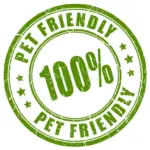 While many store-bought cleaners labeled as “pet-friendly” are generally safer than traditional cleaners, it’s essential to read the ingredients. Look out for any undisclosed “fragrances” or chemicals that can be harmful to pets.
While many store-bought cleaners labeled as “pet-friendly” are generally safer than traditional cleaners, it’s essential to read the ingredients. Look out for any undisclosed “fragrances” or chemicals that can be harmful to pets.
How often should I clean my carpet if I have pets?
Ideally, high-traffic areas and places where pets frequent should be cleaned every 3 to 6 months. Regular cleaning prevents the buildup of dander, hair, and potential allergens.
Can essential oils harm my pets?
Some essential oils can be harmful if ingested, inhaled, or if they come in contact with the skin of pets. Always use therapeutic grade oils and consult with a vet before using any oils around your pets.
My pet licked a freshly cleaned carpet spot. Should I be worried?
If you’ve used a pet-safe cleaner, there should be minimal risk. However, if you used a traditional chemical-based cleaner, monitor your pet for any signs of distress and consult with a veterinarian immediately if you observe any symptoms.
Are there carpet materials better suited for homes with pets?
Yes, materials like nylon and polyester are durable and resist pet stains better than others. These materials can withstand frequent cleanings without deteriorating.
How to get dog pee out of carpet?
Removing dog urine from carpet can be a challenge, especially if it has set for a while. However, with the right approach, you can effectively remove the stain and odor. Here’s a step-by-step guide:
Blot the Fresh Stain:
- If the urine is still wet, use paper towels or a clean cloth to blot up as much of the urine as possible. Do not rub, as this can spread the urine and push it deeper into the carpet fibers.
- Place a thick layer of paper towels on the wet spot and press down with your feet or place a heavy object on top to help absorb the moisture.
Prepare a Cleaning Solution:
- Vinegar and Baking Soda: Mix equal parts of white vinegar and water in a spray bottle. Spray the affected area generously. Let it sit for a few minutes, then sprinkle baking soda over the area.
- Commercial Enzymatic Cleaners: These are specifically designed to break down the proteins in urine, eliminating both the stain and odor. Brands like Nature’s Miracle or Simple Solution are popular choices. Always follow the manufacturer’s instructions.
Apply the Cleaning Solution:
- If using the vinegar solution, after sprinkling baking soda, let it fizz and sit for a few hours or overnight if possible.
- If using an enzymatic cleaner, apply as directed on the product label.
Blot and Rinse:
- After the solution has had time to work, blot the area with a clean cloth to remove any excess moisture.
- Rinse the area with cool water and blot again to remove the cleaning solution. This step is crucial to prevent any residue from attracting dirt in the future.
Vacuum:
- Once the area is completely dry, vacuum to restore the carpet’s texture and remove any leftover baking soda or residue.
Check for Remaining Odor:
- If you can still smell urine, it may have soaked into the carpet padding or even the subfloor. In such cases, you might need to treat the area multiple times or consider hiring a professional carpet cleaner.
Prevent Future Accidents:
- If your dog has an accident once, they might be inclined to return to the same spot. Clean the area thoroughly to remove any lingering scents that might attract your dog back to the spot.
- Consider using a pet repellent spray or another deterrent to keep your dog away from the area.
Remember, always test any cleaning solution on a small, inconspicuous area of your carpet first to ensure it doesn’t cause discoloration or damage.
How to get dog pee smell out of carpet?
If you’ve managed to remove the visible stain from dog urine but are still battling the lingering odor, here are some steps and methods to help you eliminate the smell:
Enzymatic Cleaners:
- These cleaners contain enzymes that break down the proteins in urine, which are the primary cause of the odor. Brands like Nature’s Miracle, Simple Solution, or Rocco & Roxie are popular choices.
- Follow the manufacturer’s instructions. Typically, you’ll want to saturate the area to ensure the cleaner reaches the carpet padding where urine might have soaked.
Vinegar and Baking Soda:
- Mix equal parts of white vinegar and water in a spray bottle. Spray the affected area generously.
- Let it sit for a few minutes, then blot up as much moisture as you can.
- Once the area is mostly dry, sprinkle baking soda over it. The baking soda will help absorb and neutralize odors.
- After letting the baking soda sit for a few hours or overnight, vacuum it up.
Hydrogen Peroxide:
- Mix a solution of ½ cup of 3% hydrogen peroxide, 1 teaspoon of dish soap, and 2 tablespoons of baking soda.
- Test this solution on an inconspicuous area of your carpet first to ensure it doesn’t bleach or discolor the fibers.
- Apply to the affected area and let it sit for an hour or so, then blot and rinse with water.
Professional Cleaning:
- If home remedies aren’t effective, consider hiring a professional carpet cleaning service. They have specialized equipment and solutions that can deeply clean and deodorize carpets.
Odor Neutralizers:
- There are commercial odor neutralizers available that can help mask and eliminate pet odors. These can be sprayed or sprinkled on the affected area.
Air Out the Room:
- Open windows and doors to allow fresh air to circulate and help dissipate the odor.
- Consider using fans to help speed up the process.
Replace the Carpet Padding:
- In extreme cases where the urine has deeply soaked into the carpet padding or subfloor, you might need to replace the padding in that particular area. This is a more drastic measure but can be effective in completely eliminating deep-set odors.
Prevention:
- Train your dog to avoid accidents indoors.
- Consider using a waterproof carpet pad, which can prevent liquids from soaking through to the subfloor.
- Regularly clean and deodorize areas your dog frequents to prevent the buildup of odors over time.
Remember, always test any cleaning solution on a small, inconspicuous area of your carpet first to ensure it doesn’t cause discoloration or damage.
What neutralizes dog urine?
Dog urine can be neutralized using a combination of methods that address both the stain and the odor. Here are some substances and methods that can neutralize dog urine:
White Vinegar:
- White vinegar is a natural acid that can neutralize the alkaline salts present in dried dog urine stains. Mix equal parts of white vinegar and water and apply it to the urine stain. Allow it to sit for a few minutes, then blot up the moisture.
Baking Soda:
- Baking soda is an alkaline substance that can neutralize acidic components in urine. It also acts as a natural deodorizer, absorbing odors. After treating a urine spot with vinegar, sprinkle baking soda over the area, let it sit for a few hours or overnight, and then vacuum.
Enzymatic Cleaners:
- These cleaners contain enzymes that break down the proteins and uric acid crystals in urine, effectively neutralizing the stain and odor. Popular brands include Nature’s Miracle, Simple Solution, and Rocco & Roxie. Always follow the manufacturer’s instructions.
Hydrogen Peroxide:
- Hydrogen peroxide can help neutralize the odor of dog urine. However, it can also bleach or discolor certain materials, so always test a small, inconspicuous area first. Mix a solution of ½ cup of 3% hydrogen peroxide with a teaspoon of dish soap and apply to the urine stain. Allow it to sit for a while, then blot and rinse.
Dish Soap:
- Mild dish soap can help break down the uric acid and remove the stain. It’s often mixed with other solutions, like hydrogen peroxide, for a more effective treatment.
Lemon Juice:
- The citric acid in lemon juice can help neutralize the alkaline components of dog urine. Mix equal parts of lemon juice and water and apply to the stain. However, be cautious, as lemon juice can also bleach certain fabrics.
Cornstarch:
- Cornstarch can help absorb fresh urine, reducing the amount of urine that needs to be neutralized. Sprinkle cornstarch over a fresh urine spot, let it sit for a few hours, then vacuum.
Water:
- Rinsing the affected area with water after treating it with any of the above solutions can help wash away the urine components and any cleaning residues.
When dealing with dog urine, it’s essential to act quickly. The longer the urine sits, the harder it will be to neutralize and remove the stain and odor. Always test any solution on a small, inconspicuous area first to ensure it doesn’t cause discoloration or damage.
References
- “Common Toxic Household Products to Avoid.” www.petswebmd.com/
- Smith, J. (2018). “Chemicals in Household Cleaners.” Environmental Health Journal.
- Brown, L. (2020). “The Impact of Naphthalene on Pet Health.” Pet Health Monthly.
- Robinson, M. (2019). “Case Study: Dog’s Reaction to Chemical Cleaners.” Veterinary Sciences Today.
- Patel, K. (2021). “Natural Cleaners and Their Efficacy.” Green Home Journal.
- The Clean Home Guide. “Safe Ways to Address Pet Stains.” cleanhomeguide.com/
- Essential Oils for Pets Guide. “Using Essential Oils Around Pets.” 2022. essentialoilspets.com/
- Anderson, P. (2020). “Review of Natural Carpet Cleaners.” EcoHome Magazine.
- Johnson, F. (2019). “The Truth About Green Labeling in Cleaning Products.” EcoConsumer Journal.
I hope you appreciate this article. Before you move on, I was hoping you would consider clicking below to like and share.
Call AJS Carpet Cleaning Orem or Provo for the best professional carpet cleaning services in Utah County.
801-368-0705
Victor Nugent is Owner and President of AJS Carpet Cleaning, Inc. He is a Chemistry, Zoology, and Botany graduate of the University of London, U.C.W.I., with over 20 years experience in the Carpet Cleaning business. For more information call 801 368-0705 or visit our website at AJS Carpet Cleaning Provo.
